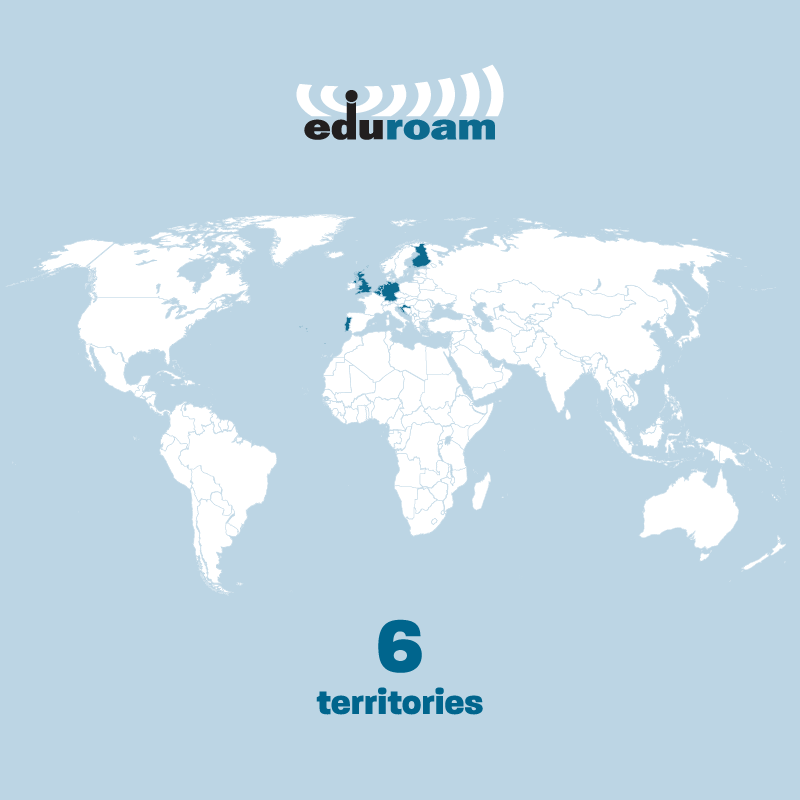Navigation
eduroam® – education roaming is a free service for Internet access. It provides its users with safe, fast and simple access to the Internet around the world, without the need to open additional accounts, with the use of an already existing username and password created at the institution where they work or study.

Users of the eduroam service are students and employees in scientific research and educational institutions around the world. In Serbia, it can be used by students, professors, lecturers, scientists, researchers and all other employees in member institutions of the Academic Network of Serbia (AMRES).
Thanks to the most modern encryption standards (WPA2/AES and WPA2/TKIP), users are guaranteed a high level of data privacy protection.

In addition to Serbia, eduroam is available in numerous scientific research and educational institutions in 67 countries in Europe and the world. You can view a map with access points here for Serbia or visit this link for a global map. If you want to use the eduroam service at access points outside the Faculty of Veterinary Medicine, some of the parameters for connecting to the eduroam wireless network may be different depending on the institution you are at, which you can check here.
Accessing the Internet via eduroam is very simple. It only needs to be set up once on the user's device. Instructions for using and accessing the eduroam service can be found at the following links:
6. Users
6.1 Users are responsible for the use of their digital identities.
6.2 A visitor who wants to access the Internet at the eduroam resource provider is considered a user. The user MUST behave in accordance with their identity provider's AUP or equivalent and MUST comply with the visited institution's AUP or equivalent. Where provisions differ, more restrictive measures apply. The user MUST comply with the applicable laws of the country in which he is physically located when using the service.
6.3 The user assumes the responsibility that before entering the username and password to access the eduroam service, he checks whether he is connecting to an authentic eduroam service (that is, to make sure that it is not an eduroam access set up by mistake or malicious intent). Guidelines for these checks are given to users by the parent institution, and they primarily refer to checking the authentication server of the identity provider, that is, checking the validity of the digital certificate of this server.
6.4 The user is responsible for keeping his digital identity and using any service they provide.
6.5 If the user's digital identity is compromised, he MUST immediately notify his home institution.
6.6 The user is obliged to inform the visited institution (if possible) and the home institution about any problems encountered when using or attempting to use the eduroam service.





